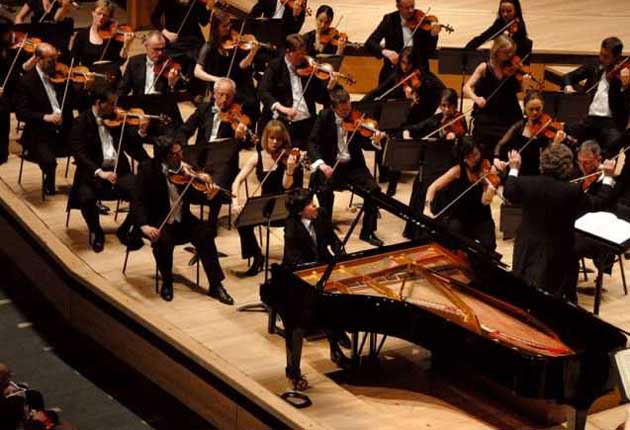London International Piano Competition, Royal Festival Hall, London

Your support helps us to tell the story
From reproductive rights to climate change to Big Tech, The Independent is on the ground when the story is developing. Whether it's investigating the financials of Elon Musk's pro-Trump PAC or producing our latest documentary, 'The A Word', which shines a light on the American women fighting for reproductive rights, we know how important it is to parse out the facts from the messaging.
At such a critical moment in US history, we need reporters on the ground. Your donation allows us to keep sending journalists to speak to both sides of the story.
The Independent is trusted by Americans across the entire political spectrum. And unlike many other quality news outlets, we choose not to lock Americans out of our reporting and analysis with paywalls. We believe quality journalism should be available to everyone, paid for by those who can afford it.
Your support makes all the difference.What do Martha Argerich, Radu Lupu, Vladimir Ashkenazy, Murray Perahia, Krystian Zimerman and Lang Lang have in common? All are stars in the pianistic firmament, and all came to prominence by winning competitions. And how did that Croatian dynamo Ivo Pogorelich put himself on the map? By getting knocked out of a first round in Warsaw, and having Argerich storm out of the jury at this injustice: not winning can be as potent as winning. Piano competitions often get a bad press, with ritual accusations of corruption. But as an intermittent juror myself, I'd say that bland compromise represents a greater flaw.
There was no trace of compromise in the final judgment at the triennial London International Piano Competition. The winner was an 18-year-old Uzbek named Bezhod Abduraimov, whose electrifying delivery of Prokofiev's exuberant Third Piano Concerto left no room for doubt as to where the first prize should go. With hands springing off the keys in the big staccato chords faster than the eye could register, and with his body almost levitating with excitement, he combined unbridled joy with a hugely impressive technical control. His semi-final recital had included a crystalline account of Ades's "Traced Overhead" and a performance of Brahms's Paganini Variations which was at times revelatory.
Both the other finalists would have made worthy winners. Third prize went to Andrejs Osokins from Latvia, who chose Liszt's First Piano Concerto to go out on – perhaps unwisely. Was it thanks to the music's skin-deep showiness that his impeccably stylish performance left no residue in the mind? At all events, when Alessandro Taverna followed him with a magisterial account of Chopin's First Piano Concerto, the world was suffused with grave beauty. This 26-year-old Italian is remarkable: his semi-final recital, spanning Chopin, Bach and Stravinsky, was 50 flawless minutes of poetry.
One hundred pianists had entered the lists, 24 came to London, and 9 made the semi-finals, of whom three others will also, I predict, become significant figures: Stephanie Proot (from Belgium) for her tone-painting; Sasha Grynyuk (Ukraine) for his perfumed way with Scarlatti and Ligeti; and Sofya Gulyak for the sheer glorious Russianness pervading everything she plays.
Join our commenting forum
Join thought-provoking conversations, follow other Independent readers and see their replies
Comments